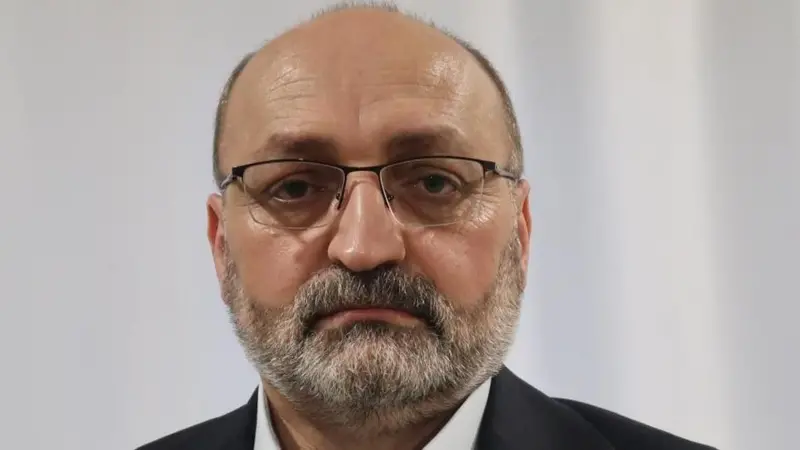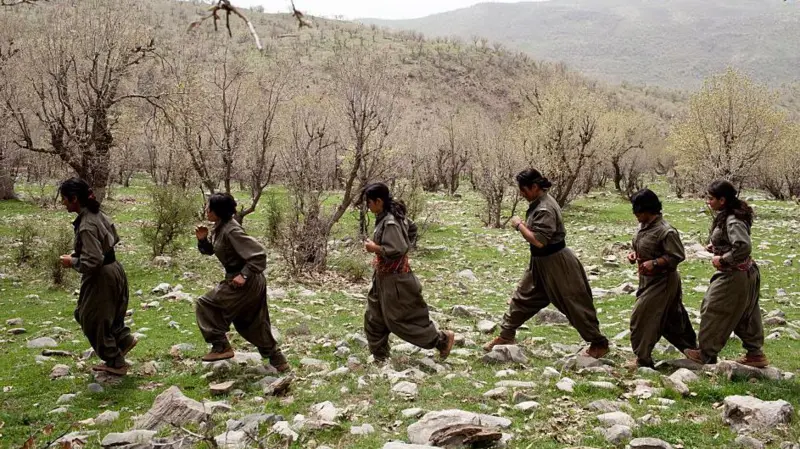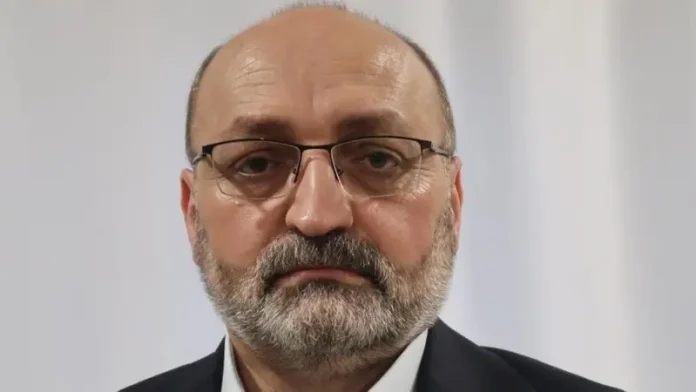PJAK responds to the questions of BBC News Turkish
Mahmut Hamsici
Emir Kerimi, co-chair of the PJAK (Kurdistan Free Life Party), which operates in Iran, stated that, unlike the PKK, they have no intention of disbanding or laying down arms, despite supporting the ‘new process’ in Turkey.
“There is no such environment in Iran,” Kerimi explained.
He declared: “we have never attacked Turkey and we never will,” and emphasised that they wish to establish normal and peaceful relations with the Turkish state.
In his written responses to questions from BBC News Turkish, Kerimi stated the following regarding the Israel-Iran conflict: “This is not our war, nor the war of our people. We are not a party to it.”
The group is a member of the Kurdistan Communities Union (KCK), an umbrella organisation of which the PKK forms the backbone.
“We Support the Process”
Following Abdullah Öcalan’s call for disarmament on 27 February, the PKK held its congress from 5–7 May and announced on 12 May that it would lay down its arms and dissolve.
While some refer to this process as one of ‘peace’ and ‘resolution’, the government labels it a ‘Terror-Free Turkey’.
On 18 June, President Recep Tayyip Erdoğan stated:
“We need consensus and cooperation to peacefully achieve the goal of our “Terror-Free Turkey” process, whose strategic importance is now better understood.”
In his written responses, Kerimi says they fully support Öcalan’s call, describing it as “a major opportunity for democratic change in Turkey and the Middle East.”
Kerimi describes the PKK’s move as strategic and states that they are serious. However, he criticises the Turkish side:
“This call and the PKK’s positive response raised great hopes for peace and democracy. Unfortunately, the Turkish state is handling this issue quite tactically and is avoiding taking steps in this direction.”
On laying down arms: “how can we remain defenseless?”
During this process, Turkish officials have stated that groups such as PJAK and YPG in Syria should also disarm.
Kerimi replies that disarmament or dissolution is not on PJAK’s agenda.
He emphasises that PJAK advocates “democratic struggle and dialogue for a democratic solution to the Kurdish issue.”
When asked why they chose an armed method, Kerimi refers to “circumstances and oppressive policies.”
However, he adds: “PJAK has never adopted a strategy of national liberation or armed struggle.”
Meanwhile, the Iranian government denies the systematic repression of Kurds and views PJAK as an armed terrorist organisation that threatens national security and territorial integrity.
During the 2022 Mahsa Amini protests, Iran’s interior minister, Ahmad Vahidi, stated that “counter-revolutionary terrorist groups” had planned the uprising and listed PJAK among them.
Iran also accuses Kurdish opposition groups such as PJAK, the Democratic Party of Iranian Kurdistan and Komala of collaborating with Israel, as well as of separatism and terrorism.
“We want normal and peaceful relations with Turkey.”
In the past, Turkey has conducted operations against the PJAK, some of which were carried out in coordination with Iran.
Kerimi criticised these operations, claiming that many of their members had been killed, and stated:
“We have made no demands of the Turkish state, so we have no problem with it. Turkey’s approach to us is based on its chronic Kurdophobia. We have not carried out, and will not carry out, any operations against Turkey. We seek normal and peaceful relations with the Turkish state and are ready for this.”
However, some experts in Turkey claim that even if the PKK lays down arms, their weapons could be transferred to the YPG and the PJAK.
When asked about this concern, Kerimi says:
“No, we don’t see this as possible. Why would the PKK transfer weapons elsewhere when it is seeking a solution with the Turkish state?”
“PJAK will not be the one to start the war.”

There has been an unofficial ceasefire between PJAK and Iran since 2011. Could the recent crisis between Israel and Iran affect PJAK’s situation? Kerimi insists that they will not be the ones to start a war:
“Even though Iran has violated this ceasefire, we are still committed to it. PJAK will never initiate war. The Israel-Iran war is not our war, nor is it our people’s war. We are not a party to it.
We seek democratic solutions to problems. We will only defend ourselves if we are attacked or if our people are threatened with massacre — this is our legitimate right to self-defence.”
On self-governance: “We did not declare autonomy”
In a written statement on 14 June regarding the Israel–Iran conflict, the People’s Mujahedin of Iran (PMOI/MEK) called on “all peoples to mobilise for the construction of a self-governing democratic society.”
We asked Kerimi if this was a declaration of autonomy. He replied:
“We did not declare autonomy in our statement. The right of people to determine their own fate and form of governance is a natural right.
In our statement, we called on our people to form various committees to handle their own affairs and meet their basic needs independently of the state during this crisis.”
“There’s nothing to celebrate in any war.”
Some Turkish analysts have claimed that PJAK was pleased with Israel’s attacks on Iran based on the language used in their statement.
However, Kerimi rejected these claims, saying:
“We know the pain of war better than anyone. There is nothing in any war that can make us happy. Whether or not there is a war between Israel and Iran, we will continue our struggle for the rights of our people.”
Do Israeli attacks help regime change in Iran?
While some democracy supporters in Iran have condemned Israel’s attacks, others, both in Iran and in the diaspora, believe that they might create an opportunity for regime change.
We asked Kerimi whether PJAK shares this view. He responded:
“As we’ve said many times, war does not bring freedom and democracy. We are not pro-war. It is the democratic struggle carried out by peoples, identities, and the oppressed that brings freedom and democracy.”
What is PJAK?

Following the capture of Abdullah Öcalan in 1999, protests broke out in various Kurdish cities in Iran and many people were killed by security forces.
Subsequently, the PKK gained influence among Iranian Kurdish youth.
In 2004, PJAK was founded. The organisation opposes Iran’s Islamic regime and advocates democratic self-governance and confederalism.
Its armed wing is called the Eastern Kurdistan Units (YRK).
Over the years, clashes between PJAK and Iranian forces have resulted in hundreds of casualties on both sides. Following clashes in 2011, a de facto ceasefire between Iran and PJAK began.
The current co-chairs of PJAK are Emir Kerimi and Peyman Viyan. Its armed members are reportedly based in the mountains of Iraqi Kurdistan. Turkish officials claim that PJAK is the Iranian offshoot of the PKK.
When asked about their relationship with the PKK, Kerimi emphasises that their ties are based on Öcalan’s philosophy:
“We founded our party at a time when Öcalan was proposing his vision of a democratic, ecological society based on women’s freedom. We adopted this idea and built our party on that basis.
Of course, philosophical and ideological affinity between two groups can lead to collaboration in other areas, but this does not imply an organic relationship.”
The source of this conversation is the following link: https://www.bbc.com/turkce/articles/c1jwd2n9wgeo


